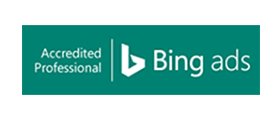Unless you live in a cave somewhere, without wifi, then you can’t have avoided the news about the change to the Facebook news feed ricocheting around the marketing world. The main drive here seems to be that pages will see less visibility in the news feed whilst interactions with family and friends will be prioritised.
And if the results from a trial run are to be trusted where page posts were moved to a secondary feed, the reported impact was between 60% to 80% – a pretty big deal if you rely on organic social traffic.
But How Will This Affect Advertisers?
The original post (which you can read here) was not terribly helpful and sent a lot of advertisers into a tailspin. Fortunately, Facebook account managers have been sending out what I can only assume is a largely templated email to put advertisers’ minds at rest.
I will provide the full message below along with the key points, but the main point is that ads will not be affected by the coming change. Only organic page reach will really be hit here. Which has been in steep decline for years anyway, so it’s really no big deal. Facebook is just becoming, even more, pay to play than it is already – which is pretty hard to be surprised about.
Key Points
The key points of this message are as follows:
- Increased weight on friend and family interactions
- Pages will see a decrease in organic reach, referral traffic, and total video watch time
- In general, ads will not be affected
- Boosted posts may see a slight decline
- These changes can be combated by creating highly engaging content
Overall, it is business as usual for advertisers. And for content producers, it’s all about creating content that your users are going to want to engage with. Potentially, less noise from page posts creates an opportunity for engaging content.
I like to try and find the opportunities in these changes. Rather than go into a tailspin and worry about things that we can’t change. And, on a personal level, it is rarely the content from 95% of my Facebook friends that I find engaging.
The first tier of people I actually still have a real life interaction with possibly, so if this content gets prioritised, that’s great, and maybe ads for highly relevant content can stand out better than ever from the never-ending stream of narcissistic look-how-amazing-my-life-is posts that 90% of Facebook users pump out.
I would not be surprised if we see growth in the use of the secondary tab where page content will be squirrelled away. It’s certainly easy to get bored of what is in your feed for most people – there are only so many pictures of peoples’ kids and dinners that anyone can take – right?
The Original Message
Below is the original message (the highlighting is mine):
“We built Facebook to help people connect and bring them together. That’s why we’ve always put friends and family first in News Feed.
Recently, we’ve been hearing people say that Facebook isn’t about their friends as much as it used to be. We agree. We know we can do more to help bring people closer together and stay connected with their friends and family.
To do so, we’re going to gradually introduce updates to News Feed that increases the weight we put on friend interactions. Posts that inspire conversations and interactions, such as comments, shares, and reactions, will be prioritized over posts that are consumed passively.
With these changes, Pages may see a decline in their organic reach, referral traffic, and total video watch time, although posts that lead to more meaningful interactions will see less of an impact. We are not making any changes to ads ranking at this time. However, if a Page post is getting less organic reach due to this ranking change, it may see a slight impact within the ads auction, if boosted. It’s important to note, however, that engagement is a very small part of ads ranking – we rely on many other data points to determine what ads people see to ensure relevancy and value. As our ads auction already optimizes for user value, we encourage advertisers to continue focusing on driving real business outcomes.
We will continue to work to better understand the types of posts that promote meaningful interactions – particularly for Pages. It’s important to note that you should not focus on ‘engagement baiting’ by trying to get audiences to comment on your posts — such as asking people to “Comment YES if you like rock music” — this type of behaviour does not constitute a meaningful interaction. Rather, you should create content that matters to your customers, while staying true to your brand. For example, businesses can create posts that highlight new products and promotions or services, reply to customer questions on their content via comments or messaging, create Events to connect with customers in the local community, upload relevant videos that reflect their customers, and provide important updates about their services. We encourage you to test what content works well for your Page.
Moving forward, we’ll increasingly focus on all the ways to build community around the content that people share and watch instead of just helping people passively consume more of it. By making it easier for people to interact in meaningful ways — whether it’s with family and friends, or people coming together around things like news and video — we can help make sure that Facebook is time well spent.”
Summary of Changes to the Facebook News Feed
This is a major change to the Facebook news feed. Posts from businesses, brands, and media pages will all see far less exposure. Content from friends and family that drives conversations and interactions will be emphasised. There will be a new tab for all the content removed and ads will still feature in the main feed.
What Should You Do?
Advertisers likely have nothing to worry about and these changes may actually improve results from ads.
Content publishers relying on organic reach may suffer, at least initially, but long term, I feel that usage of this secondary feed may pick up. Probably not to where it was originally, but Facebook has been chipping away at organic reach for years so really, this is just more of the same.
If pages start to promote content, I wonder if we may end up almost where we were to begin with. Only time will tell, but at least for advertisers – we may actually see improvements.






